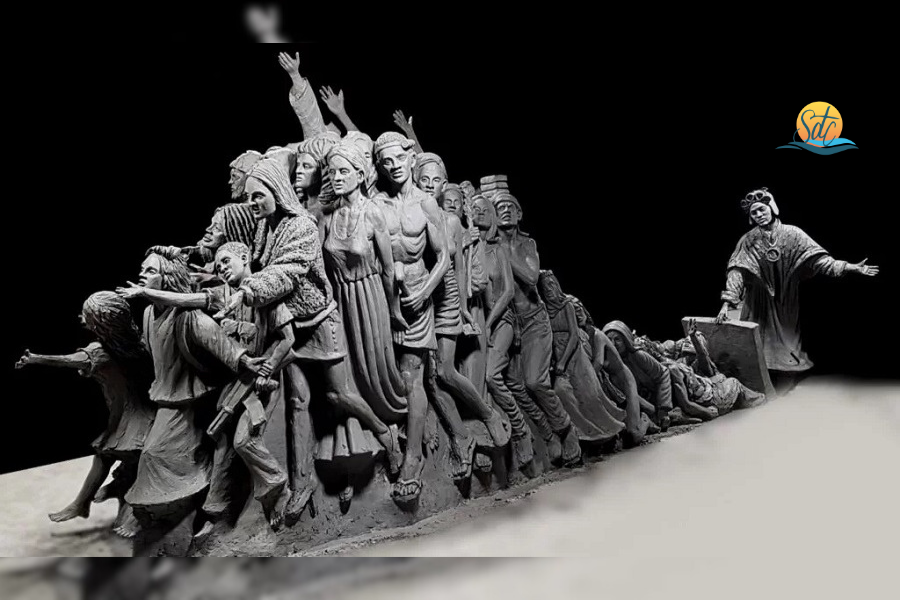“How do we tell the poor “God loves you”? This is the most important question for our world today. It is impossible to answer it. But part of the answer is to live with the poor, to become one of them”. These were, respectively, the fundamental question and the equally demanding answer that marked the human, spiritual, theological path of Father Gustavo Gutierrez, who left us on 22 October 2024, but whose work lives on in history.
We owe to him the extraordinary ‘option for the poor’, with its consequences in different dimensions: evangelising, spiritual, theological. Through his lifestyle and theological reflection, Father Gutierrez was able to show how God’s preference for the poor, the marginalised, the abandoned is manifested throughout the Bible. The option for the poor,’ emphasised Archbishop Castillo of Lima on the day of Father Guiterrez’s funeral, “is the foundation for walking in this world where injustice, misery, marginalisation, intolerance, dictatorship, contempt and mistreatment want to be imposed, as has happened in so many times, but as is also the case in our time, in which we have the duty to humanise humanity with the same sentiments as Jesus Christ”.
Faced with the poverty into which the Latin American populations were plunged after World War II, Guiterrez posed the question of how it was possible to speak to the poor about God’s love for them, whose daily life was precisely the negation of love. He had the merit of engaging and involving the Church in the challenge that poverty represents for the proclamation of the faith.
Throughout the centuries, the Church had never forgotten about the poor, and we Sisters of Charity are also a drop in the ocean of the countless initiatives, structures, organisations, destined to help the poor. Over the centuries, theological reflection had also addressed the phenomenon of poverty, but – as the theologian Severino Dianich points out to us – the issue was set exclusively on the moral plane and in an eminently personal perspective.
At the end of the 19th century, an awareness developed that the problem was not just a moral one, but a fundamental political problem, and the Magisterium began, with Leo XIII, to elaborate a social doctrine of the Church. Only with the theology of liberation, however, of which Gustavus was the initiator and main protagonist, did we move from the consideration of an ethical, sociological and political statute of the poor to the configuration of a theological statute of the poor, which places it in a relevant way within the framework of fundamental theology, Christology and ecclesiology.
The Second Vatican Council could not fail to address the issue in its entirety, but found itself, in fact, very conditioned by the widespread fear, shared also by some of the Fathers, that fighting in defence of the rights of the poor could appear, in years when the tension between the western world and the communist world was still very strong, as sharing the Marxist ideology of class struggle. The weakness of the conciliar debates was compensated for, to some extent, by the reflection on the theme of poverty by a group of bishops who gathered at the Belgian College in Rome. At the explicit request of Paul VI, the group drew up a Report on Poverty in the Church, which was then presented to him and signed by more than 500 bishops.
It was in this context that the Covenant of the Catacombs had matured of some forty bishops who, in a Eucharistic celebration in the catacomb of Domitilla, committed themselves before God to renounce the substance and signs of an episcopate still tied to the world of the old nobility and to adopt a poor lifestyle in their personal lives.
Three years later, the Latin American episcopate at its Plenary Conference in Medellin would raise the issue of the Church’s poverty and its responsibility to the poor and their struggles for justice. One of its most influential protagonists had been Gustavo. Those were the years of dictatorships and it seemed that the only possibility for concrete action was to embrace armed struggle, as Camillo Torres, who died in a guerrilla action in 1966, would do.
It will be the theology of liberation (Gutierrez’s book will be published in 1971) that will keep alive in the Church, despite criticism and hostility of all kinds, the awareness that thecommitment to the liberation of the poor from their conditions of destitution and, not infrequently, of spiritual degradation, is an essential part of the mission.
[We thank the Editorial Staff of SettimanaNews, the online magazine of the Dehonian Fathers, Priests of the Sacred Heart, for the article by Severino Dianich].






